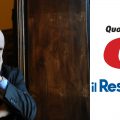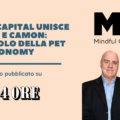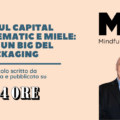After Trump’s surprising victory and my first comment— I’ll repeat it here: I’m more amused than worried, even though it’s the first time since 1928 that the president, senate, and house belong to the same party and those years were not pleasant— and considering that we’re still reading and hearing everything and its opposite from the media, I’ll report the “why” coming from my authoritative American sources, which is probably more on the money compared to Italian editorialists espousing their “truths” from Milan and Rome at an ocean of distance based on second and third-hand news.
First of all, we need to emphasize that Trump’s victory was not that surprising in certain areas. On the one hand because Clinton, for a variety of reasons, was generally seen as an abysmal future president. On the other hand, because the suffering of the American middle class— which has by now become poor— is vast, with the majority of unemployed people not even looking for new jobs because they’ve lost hope, like in the Midwest where the last available jobs are at McDonald’s and Burger King.
Essentially, it was the vote of Americans who feel like they’ve been left behind by a sluggish economy that doesn’t benefit them who were also terrorized— especially the white majority— of seeing their status quo diminish. A city like Detroit, which until only a few years ago had a population of 2 million, is now at 675, 000 due to emigration toward richer cities like Atlanta, largely on the part of African Americans.
Therefore, it’s the vote of those saying “enough” to both the loss of internal positions and to the external concentration of resources. So, Trump’s strongest themes— limiting immigration and commercial protectionism— proved to be more winning. And, dramatically, it was the vote of the ignorant against the learned, with a multitude of— little educated— white women that favored “The Donald.”
There is one “why” above all. Trump’s electorate— and Americans in general— are sick of Wall Street’s superpowers and the correlation between politics and multinationals that frequently develop their own interests behind the curtain and don’t create diffuse wealth— actually, the opposite. And Trump pushed hard on this unease, promising a more equal redistribution of taxes, which should stimulate the economy and favor job growth.
If we want to find one, the most positive aspect of Trump’s win— antithetical to Hillary’s— is that he’s a non-politician in the hope that he’ll be able to contain bureaucracy, political rhetoric, and the relationships mentioned above. And, in fact, the sum of his campaign slogans can be summarized in this message: “I’m going to Washington to drain the swamp.”
How will he do this? Primarily by restricting the power of lobbies.
Here we have another smart move. However, we need to see if he’s credible because his staff is also teeming with long-time politicians (Mike Rogers, Chris Christie, Rudy Giuliani, Newt Gingrich, etc.) certainly not inexperienced when it comes to lobbying.
When it comes to what he’ll do, the impression is that at a commercial and investment level, he could try to hinder the Chinese, and be less interested— compared to Clinton— in inspiring a military conflict with China to contain its expansionism in the South China Sea, in the sense that Trump has no intention of playing the world’s “sheriff.” Simultaneously, we can imagine an opening toward Russia and a disengagement with NATO or, at least, a request for greater participation from other NATO countries.
With his first words, “I will be a president for all Americans,” compliments on Hillary’s will power, and the meeting with Obama, we’ve already seen a more “normalized” Trump, but his presidential philosophy remains unknown (we’ll need a few years to figure it out, in any case). With a doubt, Trump represents the voice of protest against Washington and its powers from unsatisfied Americans who are loudly demanding change. Now we’ll see where he takes us.
This is what my sources tell me. Meanwhile, I believe that Trump is like the first Berlusconi with one substantial difference: he didn’t have to descend into politics to avoid prison. We’ll see if this enormous difference will allow him to be a good president.

Share



















Lascia un commento